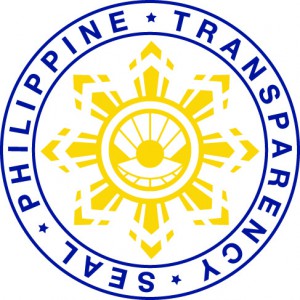Philippines has FAiTH for Aid, but US Should Show Proof
After the typhoon, transparency is essential for accountability for aid funds
David Saldivar is a Policy and Advocacy Advisor on Oxfam America’s Aid Effectiveness team.
In the aftermath of Typhoon Yolanda, foreign aid is pouring into the Philippines. The Philippine government’s online Foreign Aid Transparency Hub, FAiTH, reports that international donors have pledged more than $290 million to help with relief and recovery. Foreign assistance is vital to confronting the threats of malnutrition and disease. However, the influx of aid raises fears of another threat—that Philippine government corruption will prevent aid money from benefitting the people who need it the most. The launch of FAiTH shows that the government understands that transparency is the best weapon against the threat of corruption, and is committed to accountability for aid funds. But the Philippine government needs the United States to be a strong partner in the drive for accountability as well as recovery. To be that partner, USAID must ensure that its own spending to support typhoon recovery efforts is fully transparent.

The Associated Press reported this week that a newspaper for the Filipino community in New Zealand directed readers’ donations towards private charities like the Red Cross and didn’t mention government sites provided by the Philippine Embassy. A blog post published last week by the Center for Global Development, recounting the experience of Haiti following the 2010 earthquake as a cautionary tale, went viral within the Philippines and among the global diaspora. The post tapped into the same insight underlying the Philippine government’s publication of aid information online—public confidence that aid funds will be accountably spent is critical to recovery, and impossible without transparency.
It’s not surprising that Philippine diaspora communities and other aid donors are concerned about corruption. The Philippines performs badly in worldwide measures of corruption. However, before the typhoon struck, the country had been making substantial progress in fighting corruption and improving the management of public finances. The Philippines was a founding member of the Open Government Partnership in 2011, and passed the rigorous selection process to partner with the Millennium Challenge Corporation and USAID’s Partnership for Growth program, based on a demonstrated commitment to good governance. The activities undertaken by the Philippines in its OGP National Action Plan, MCC compact and Joint Country Action Plan under PFG all revolve around improved public integrity and anti-corruption. Through these efforts, the Philippine government is beginning to earn back the trust of its citizens—according to the latest Global Corruption Barometer report, the Philippine public perceives an improvement in the level of corruption over the last two years.
In setting up a system to publish and track foreign aid, the government shows it won’t be dissuaded by disaster from the progress it has made towards better accountability. However, FAiTH can only go so far. The system only tracks aid channeled through agencies of the Philippine government, and therein lies the danger—as in Haiti, most international aid to the Philippines, including aid from the United States, won’t go to the government, but will be spent by international contracting companies and NGOs hired by donors to carry out relief projects. In Haiti, CGD found that such funds were almost impossible to trace. Without transparency, how can Filipinos have faith that the money is getting to where it is needed? Since most US aid money will go through international rather than local channels (despite evidence that localized aid may actually be less risky), the United States is obliged to ensure that its international implementing partners disclose timely and detailed information about their own work and their subcontractors’ activities. In insisting on transparency for aid to the Philippines, according to the standard set by the International Aid Transparency Initiative, the US can prove that it’s a partner to the Philippine people in their recovery.